25 Emergency Items You Need
Today it’s all about 25 emergency items you need. Most of the time, emergencies happen when you least expect them, and if you’re not prepared for it, your family could pay for it dearly. This is why you must be stocking up on several emergency supplies to ensure their safety. Some items on this list may be ones you’ve never used or even thought about owning before. They would certainly be useful to you during a crisis.
Because tornados and hurricanes tend to happen most often during the summer or early fall, those most likely to be affected don’t always think of a disaster in our area at other times of the year. I recently updated a post in which I highlighted things we need to do to prepare for power outages. Because of winter wind, rain, and snow storms, power outages are fairly common. They can be frustrating, but in some cases, can cause serious risks to you and your family.
The term preparedness is one I use all the time. I strongly promote the idea that every family has the responsibility to be as prepared as possible for emergencies. Most emergencies seem to be outside the context of our control, but what we can do is control how we plan ahead and stock up on things that can help us get through those situations with the least amount of injury, sickness, and harm to life and property.
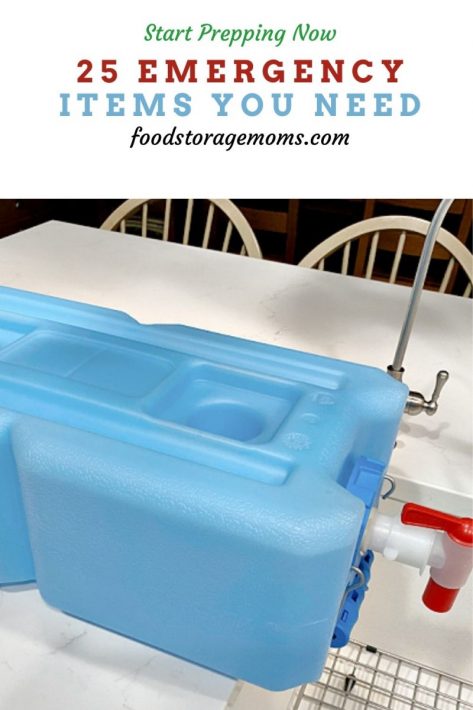
Today’s discussion covers only 25 items I’ve found to be important in the event of an emergency. I’m sure you can think of others based on your own experience or the experiences of those around you. Hopefully, if nothing else, this list and the information provided will aid you as you put together an emergency supply kit, survival kit, preparedness kit, or whatever you want to call it.
You might want to help put together emergency kits for your extended family, neighbors, or others you feel might be most at risk. Many of these seem like common sense items, and they are since they make up many basic items you use every day. I’m sure there are additional items you feel would be necessary since each family’s situation is different.
In case you missed my post, Urban Survival Class: How to Make a Bug Out Lanyard
I highly recommend this lantern/flashlight, Bushnell TRKR 1000L Lantern
25 Emergency Items You Need
1. Water Containers
Having enough drinking water should be one of your first concerns when it comes to preparing for an emergency. Make sure that you have plenty of filled containers already set aside, and also others that you can use to add to your supply since we can never have too much extra water.
I love the WaterBricks products shown below. These containers hold 3.5 gallons of water and weigh about 27 pounds each when filled. I use Water Preserver in these as a treatment solution so I only have to rotate the water every 5 years. I use a 1/2 teaspoon of Water Preserver in each WaterBrick (the 3.5-gallon size). You can stack them, and/or put them under beds. They also have a Water Spigot available (see picture below) for purchase, separately.
How much water you need to store is really a personal preference. Many government agencies and other groups like the American Red Cross suggest at least one gallon of water per person per day. The amount would cover personal hydration needs, but not much else.
I have always suggested 4 gallons per person per day. That amount could help support not only needed hydration, but also cooking, small laundry tasks, and some limited personal hygiene. We tend to forget that personal sanitation is an important part of getting through an emergency scenario.
The size of your family, the length of time the emergency might continue, and the space you have available will determine your water storage needs. I’ve used 55-gallon barrels and large 160 and 250-gallon tanks stored in my garage. I want to be as prepared as possible when it comes to water, so large containers are how I roll.
You need to remember not to put your water containers directly on cement. I put mine on 2″ x 4″ wood planks or wood pallets to keep any chemicals from leaching into the water through the base of the container. Of course, it’s important to use plastic containers that are BPA-free and to fill them with a hose that is lead-free.
I use the WaterPreserver product in these large tanks too. You can use bleach and water purification tablets, but I don’t want to drain and refill my containers all the time, so the Water Preserver product fits my needs very well.
You should also consider water filtration systems as a backup measure in case you run out of water, the water from your tap becomes contaminated, or you find a new source of water that you haven’t tested before. Big Berkey and PortaWell are two products from reputable companies I can strongly recommend you consider. (See #2 below)
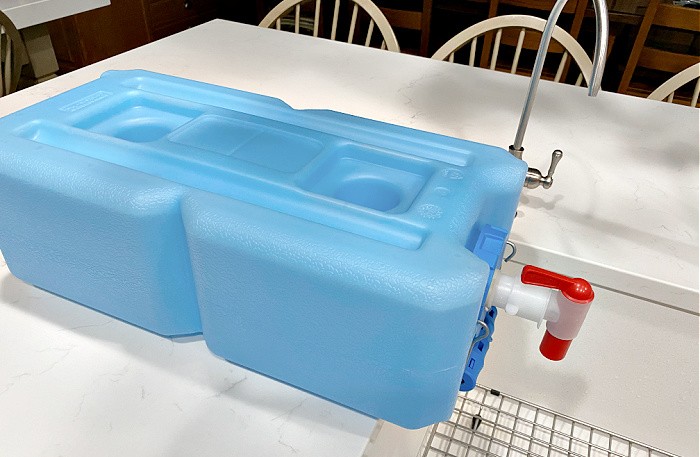
2. Water Filter/Purifier
If the tap water that’s coming out of your faucet is no longer dependable, what would you do? I’d encourage you to get a water purifier not only for your home but also a portable water filter in case you’re forced from your home. That way your family will be able to drink water that comes directly from almost any water source. Berkey Sports Bottle (BLUE bottle below)
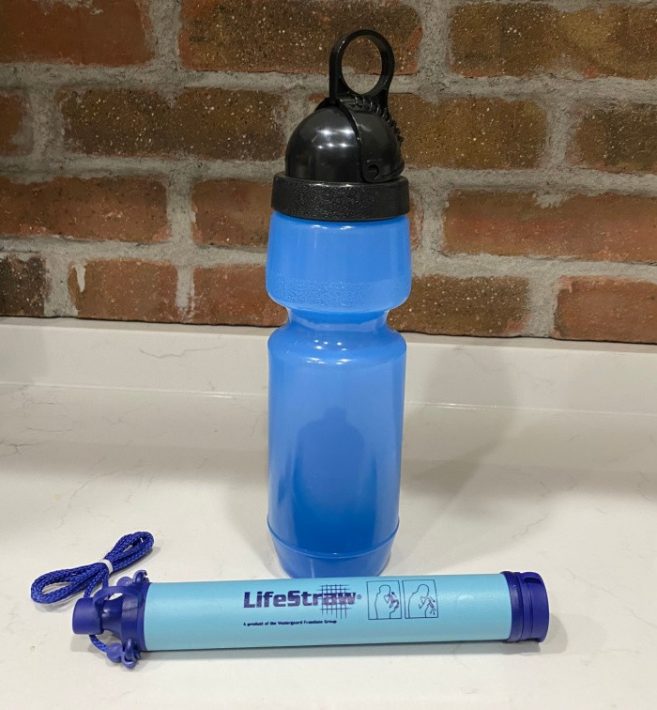
Berkey also has a Big Berkey product that provides a gravity-fed filtration option that generates more volume. The PortaWell filtration system costs more, but I like mine since it filters the water using a battery-based pump system. It can filter about 60 gallons per hour, a rate of filtration I can live with if I have to put it to use.
You want to make sure any system you purchase provides some disease control through the prevention of germs, bacteria, and viruses living in the water you want to consume. I just ordered this filter and will add pictures when I get them and try them. Sawyer Water Filter Bottle
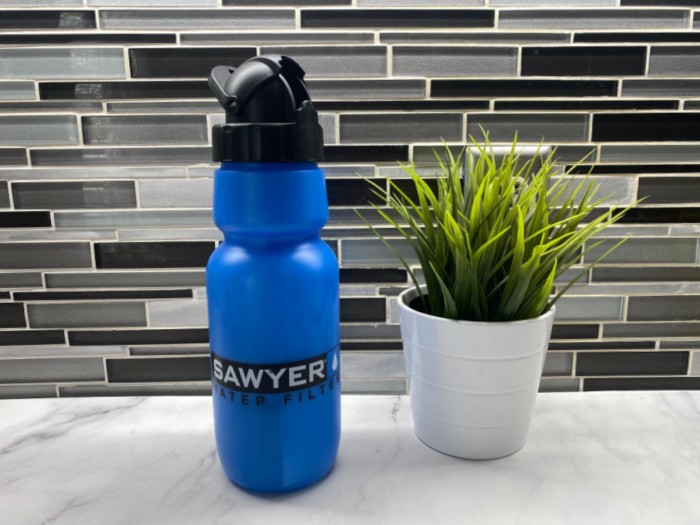
3. Fuel Sources: Firewood/Charcoal/Propane/Butane
You should consider firewood for warmth and cooking purposes. If you have the space to do so, start storing your chopped firewood as soon as you can. Sometimes people ask me how much emergency fuel they need to store. Here’s the deal, you can get by with “cooking” one meal a day. If you feel you need to cook two to three meals a day you’ll need more fuel, obviously.
We’ll need that fuel to boil water so we can wash dishes if nothing else. You may plan to clean just the pans and serving utensils, but you need soap and hot water. I keep six tanks of propane stored at all times. I can use it with my thermal cooker, my butane stove, my BBQ, and my 2-burner propane stove. My fire pit will work with a Dutch Oven.
We’ll have to be careful with the amount of fuel we use so we don’t go through too much fuel too quickly. I have enough different types of fuel to last me well over a year to cook meals. Now, if my neighbors need help with cooking because they didn’t plan for any emergency, my fuel will be used much faster.
This is why we must meet with neighbors to confirm everyone is preparing. Most are not, so be prepared for that, if you feel comfortable with sharing. Here’s a picture of my charcoal briquettes without starter fluid (blue bucket), oak hardwood charcoal (red bucket), pinecones (black bucket), and raw wood (green bucket).
I guess I may overdo things, but having the fuel sources stored in colored buckets helps me evaluate how much I have of every kind of fuel, and I’ve got a bunch of buckets. You may want to stock some Zanfel for (Poison Ivy, Oak & Sumac Wash)
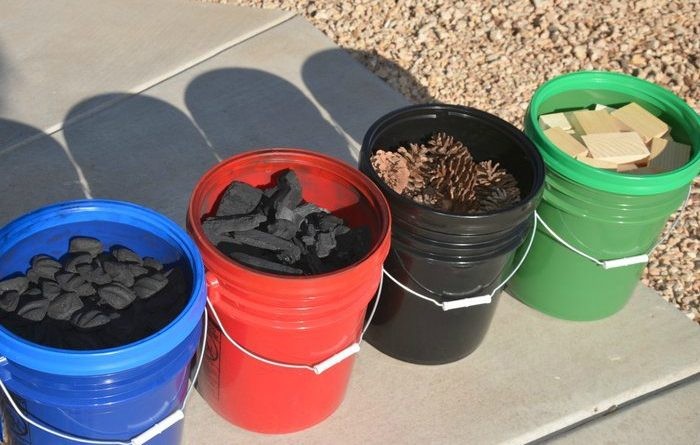
I also purchased wash sinks so I can discard the water outside should our sewer lines become backed up or shut off completely. It’s all about making plans for the unexpected. These are the “sinks” I have shown below. If you have buckets, those will work. 12-Quart Stainless Steel Flat Bottom Dish Pan
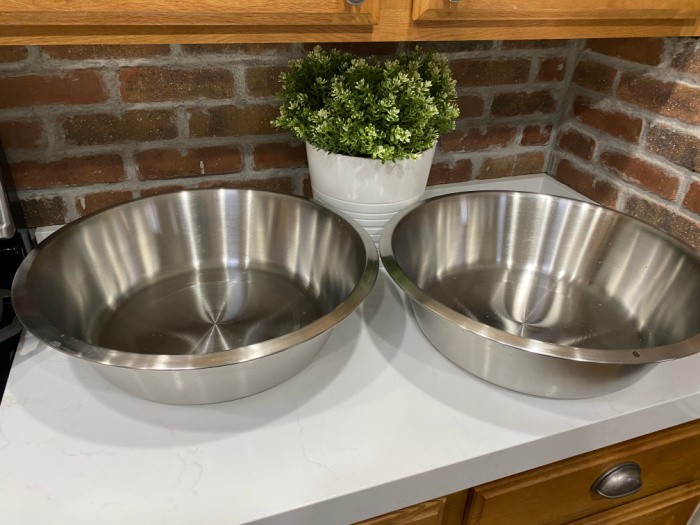
4. Light When Things Go Dark: Flashlight w/batteries/Solar Flashlights/Lanterns
Don’t leave your family fumbling around in the dark when you can purchase and store items that will provide some needed light. Make sure that you have several extra flashlights on hand and also a stockpile of extra batteries as a backup to hold you over. I have flashlights with batteries, but I have several solar flashlights too. Lanterns with batteries or solar ones are awesome.
I keep my solar flashlights on my windowsills all the time so I know they are charged and ready to go. I plan to shelter in place, if at all possible, so having things readily available and ready to go just makes good sense.
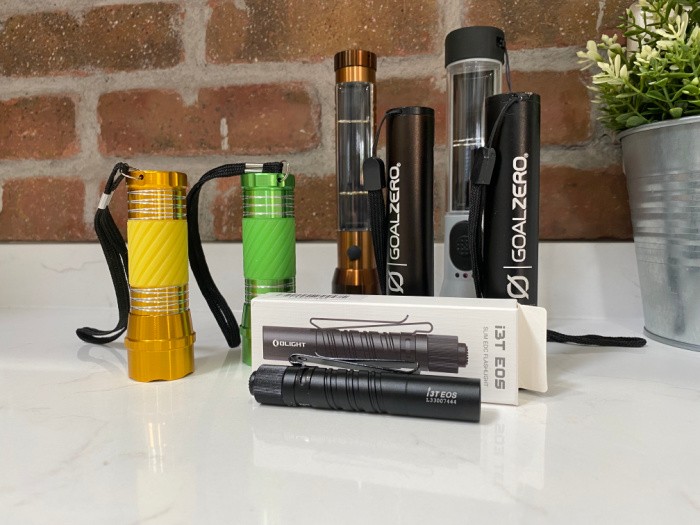
5. Gas Containers
You’ll be needing a stockpile of gas for your generator, vehicles, cooking purposes, and possibly other reasons. Make sure you store this fuel in a safe place, away from your home, and away from any flammable sources. Also, gas needs to be “treated” or its composition changes and can plug up your car and appliances. Talk to your gas provider, Auto Zone, or a mechanic to see what needs to be added and in what volumes.
6. Knife and Knife Sharpener
Knives can be used to butcher meat, chop fruits and vegetables, and cut some rope, twine, or duct tape if you need to. Yet, a knife will become useless once it’s become dull, so don’t forget to have a knife sharpener as well.
7. Food and an Outdoor Cooking Method
Storing food for your family is almost as critical as having the water we mention in #1. I won’t go into all the details here about what foods, how to store them, etc. You can go to my archives above and search for hundreds of questions regarding food storage.
If your electricity has gone out and you’re not able to use your stove for cooking, you’ll have to come up with another solution for preparing your meals. You may have a charcoal or propane grill in your backyard that you can use in the meantime, but when your situation is dire and you have to bug out, a camp stove or Kelly Kettle Stove may be necessary. This is a Kelly Kettle below. It uses pine cones, twigs, and dry leaves for fuel. It can heat a pan of soup or boil water in just a couple of minutes. (Also see #3 above for ideas.)
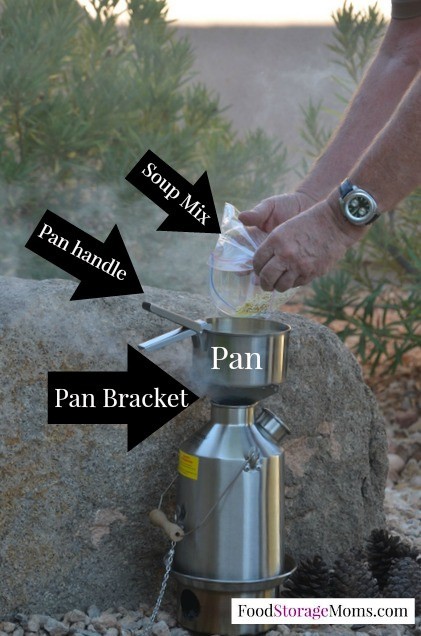
8. Cast Iron Cooking Gear
When you’re forced to leave your home, you’ll need skillets and pans that you can cook in. Your current kitchen cookware won’t hold up as well over a roaring outdoor fire. I’d encourage you to spend a little extra and get something that’s durable, like cast iron.
I wish everyone could have a 6-quart Dutch Oven. If you have a Dutch oven and charcoal with matches or a lighter, you can cook just about anything, and boil water as well.
9. Fishing Gear
For those of you who live near a body of water, there’s a good chance that it may provide your family with enough fish to stay nourished. Knowing the basics of fishing, and having the right fishing gear will provide you and your family with another meal solution. This is one area where preparation can prove to be a fun family exercise everyone can enjoy.
10. Seeds
Having an abundance of seeds will provide your family with fruits and vegetables if you were to ever wake up one day and the grocery store was no longer an option. In case you missed my post, Best Vegetables to Grow in Pots. I’m still growing lettuce, spinach, and cilantro outside. They have survived several freezing nights with the row covers. This is where I buy all of my garden seeds: SeedsNow
Of course, having a garden isn’t something you do as an afterthought. It takes planning, space, seeds, fertilizer, good soil, and water. I’ve written a great series you should check out where I outline what can be planted in the various temperature zones throughout the year. It can prove to be a valuable guide as you make your yard a beautiful and useful source of food.
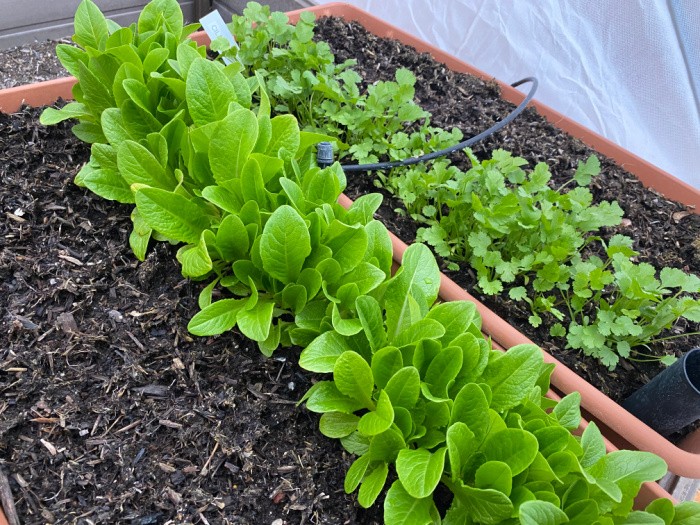
11. Garden Tools/Gloves
Okay, so you got your seeds you’re going to grow, but now you’re going to need the gardening tools to see those vegetable crops all the way to harvest. My mantra is to “buy right the first time.” Your garden tools should last you many years if you get good quality items and then take good care of them.
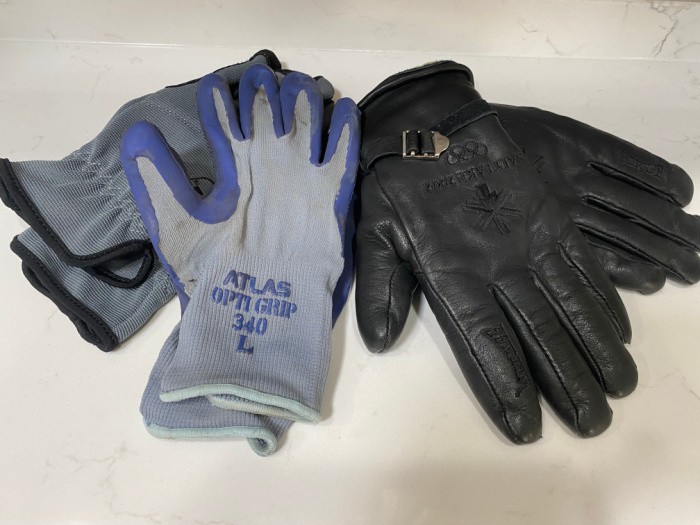
12. Canning Supplies/Dehydrator
Without being able to go to the grocery store following a major crisis, you could have a garden to fall back on, but that may not be an option during the winter. You’ll need a process where you can prepare and store your harvested food. That way it’s preserved for a longer period of time. This is something to consider since you can’t rely on your perishable foods to last very long. We all need to work on having more non-perishable food available
Those who do much canning know how hard canning supplies have been to find in stores for months now. Quality lids from manufacturers we’ve grown to trust are a real issue. I keep hearing Ball/Kerr (Jarmin) are ramping up their supplies. Be careful with poor-quality canning lids, there’s nothing worse than having bad canning lids after you’ve spent the whole weekend canning the bounty from your hard work in the garden. Please make sure you’re buying them from reputable companies.
Please watch for a dehydrator to dehydrate your harvest when your budget allows. They’re generally pretty easy to use, and dehydrated fruit slices make great snacks! Dehydrating apples is particularly easy, How To Dehydrate Apples
If a garden isn’t an option for you, keep your eyes open for sales at your local market. Or better yet, check out what may be available at a farmer’s market nearby.
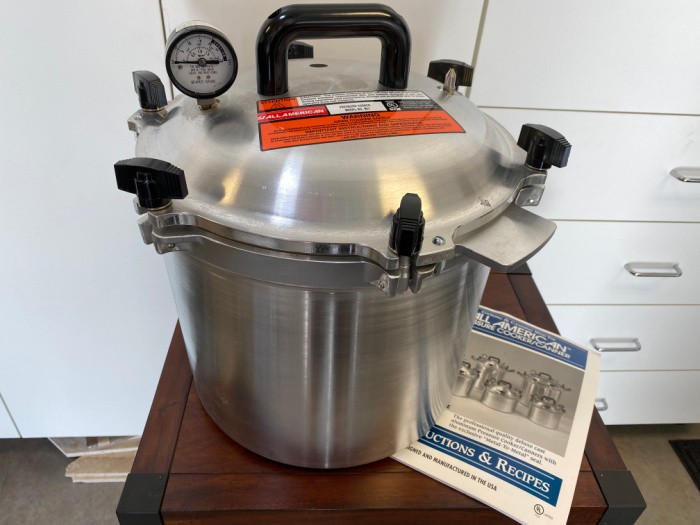
13. Axe
Even if you’ve never swung an axe before, you may need an ax to chop down and split some firewood, depending on where you live and the availability of wood. One of our homes had a fireplace insert we used to heat the home a couple of winters. It sure saved us on the heating bill, but it was a lot of work cutting the wood.
We borrowed a neighbor’s flatbed trailer and towed it behind our Suburban. It made the wood gathering a family activity by camping out, eating over an open campfire, and then cutting, stacking, and hauling the wood home. We would get multiple “cords” of wood and use it all winter. Of course, Mark used his gas chainsaw rather than an axe, but you get the idea. Truper Axe
14. Tarps
Tarps can be used to cover your supplies from the elements, drag heavier objects, and also as a handy shelter if needed.
15. Duct Tape
Duct tape could very well be what saves the day for your family during a crisis. It’s excellent for repairing things and making something that would benefit your family during an emergency. Duct Tape and Gorilla Duct Tape
I’d also suggest some good-quality rope or heavy twine.
16. Portable Mattresses/Blankets
Your situation may already be bad enough as it is, and sleeping on the ground outdoors will only leave you feeling worse. Be sure to have portable mattresses, whether a blowup mattress or a few cots. Don’t forget how nice it is to have a warm blanket to wrap up in at the end of the day. Having some blankets for each person to help them stay warm is a great way to be prepared.
17. Sleeping Bags
Even during the summer, it can get pretty cold at night when you’re sleeping underneath the stars. You’ll want to spend a little extra to invest in good quality sleeping bags that will keep your family warm at night. A sleeping bag can come in different weights and sizes. The down from a goose or duck provides good insulation in high-end sleeping bags. Using the tarps mentioned in #14 above will make all the difference as insulation if you have to sleep on the ground.
18. Portable Toilets
After the power has gone out and the local water district pumps don’t work, you no longer have a way to flush the toilet. It’s always a wise choice to have a portable toilet if your bathroom throne becomes unworkable. You’ll want to have a portable toilet or a composting toilet that you can use. I just purchased this one, and you can never have enough if something happens. Emergency Toilet
Mark and I made a few portable toilets for family and friends for Christmas gifts a few years ago. They proved to be a fun gift since many of our friends had never seen a contraption like that before. They may never have to use them, but they all seemed grateful.
Of course, you’ll need toilet paper, hand sanitizer, moist wipes, and possibly paper towels to go along with the toilet. I’d suggest you get some thicker garbage bags to “catch” what ends up in the bathroom. The waterproof container/bucket used for the toilet and seat must be sturdy.
You may want to invest in plastic sheeting under the toilet in case of spillage or to wrap around the toilet area for privacy. Make sure you dispose of the bags appropriately.
19. Fire Extinguishers
Fires don’t happen too often, but the chances of having one increase when you use an outdoor fire daily to prepare meals. If you’re wondering about fire extinguishers, this may help you choose the one you need. FIRE Extinguisher. I have this one: First Alert Fire Extinguisher | Professional Fire Extinguisher, Red, 10 lb, PRO10
Here are some interesting facts about regular fire extinguishers at home, in the garage, or in the car. All fire extinguishers are labeled with specific information to help identify which classification of fuel the extinguisher will be effective in controlling our putting out:
1. Class A Fires: Ordinary combustibles like paper, cloth, wood, rubber, and many plastics.
2. Class B Fires: Flammable liquids like oil and gasoline, charcoal lighter, and kerosene.
3. Class C Fires: Energized electrical equipment like wiring or motors. Once the electricity to those is turned off they become a Class A.
4. Class D Fires: Combustible metals like aluminum, magnesium, or titanium.
So when you purchase a fire extinguisher it’s essential to identify the type of fuel igniting the fire that you suspect would be most common so you can select the correct extinguisher you think may be best for your situation to do the job correctly.
If funds are available, it makes sense to have each type since you may need to put out a grease fire in the kitchen, a wood fire in the fireplace or backyard, or a chemical fire if you have flammable chemicals anywhere on your property. Another new product I need is a Fire Blanket; they look fantastic. Does anyone have one?
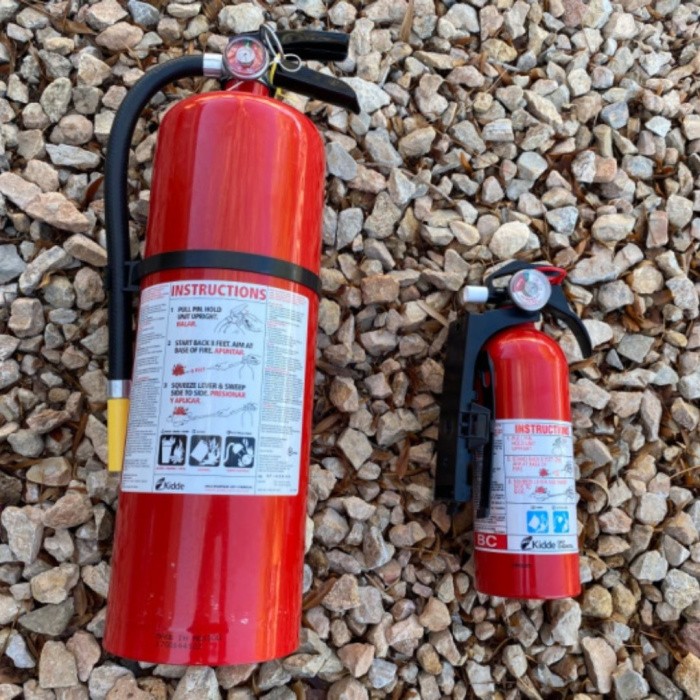
20. Rat Poison / Bug Spray
Following a significant crisis, rats and rodents could be lingering everywhere, whether you live in a rural environment or the middle of town. Rat poison is a great way to keep them out of your home if this happens.
Like rodents, bugs (flies, cockroaches, etc.) would also be an issue when living in unsanitary conditions. A stockpile of canned bug spray would help prevent a bug infestation from happening. Rat Traps. Just add some peanut butter.
21. Various Personal Items
This list could end up being endless, but here are a few items you’ll want to have an extra supply on hand:
- Baby supplies: diapers, infant formula, toys,
- Personal hygiene items: toothpaste, deodorant, shampoo, feminine supplies, moist towelettes, soap, contact lens solution, and tweezers
- Health support items: prescription medications, over-the-counter medications like aspirin, Tylenol, antacids, lotions for dry skin and sun protection, masks, including a dust mask, a first aid kit with ointments, gauze, plastic ties, bandages, a thermometer, scissors, pads, toothbrushes and toothpaste, and splints
- Pet supplies: pet food, leash, toys, and poop bags
- Temporary kitchen items: paper goods like paper cups, plates, bowls, plastic utensils, manual can openers and cookware
- Communication service: cell phones, chargers, laptops, walkie-talkies, and NOAA weather radio. With the power out, you’ll find a hand crank radio very handy.
- Copies of Important documents (in case of evacuation): identification, medical records, bank account records, contact list for professional providers like your doctor, dentist, insurance agent (include copies of insurance policies), personal identification for all family members in case you get separated
- Other personal items: complete change of clothes, other extra clothing including sturdy shoes and boots, disaster supplies kit
22. Candles with Matches and/or Lighter
The batteries in your flashlights will eventually start to run low. Although candles are more dangerous inside a home, they may be your only option if your situation doesn’t improve. Many don’t smoke, but having a lighter or one of those small butane wands can be a lifesaver. I also love battery candles; they last 5000 hours, according to the package at Costco.
23. Generator
Generators are nice to have to keep your lights and appliances working when you’ve lost your electricity. If you have a good one, it can be hooked up to your home to keep the heat or the A/C unit working, not to mention help keep everyone in your family from going bonkers from the temperatures they aren’t used to.
Generators can be costly, but you should research and see if there isn’t one that can fit your budget, even if it doesn’t do all you’d like. I have readers who have indicated they’ve made their solar generators.
Please check your equipment; I realized today that my Goal Zero 1250 solar generator no longer works (13 years old). On another interesting note, I called Goal Zero to discuss what I could use since I’m on oxygen 24/7, and they said I needed the larger unit. It’s a blessing because I assumed this would work for me; I need a much larger one.
24. Flare Gun
Should a hurricane strike your area and the massive flooding force your family out onto your home’s roof, shooting off a flare gun may get the rescue crew’s attention.
25. Whistle
If you’re trapped beneath the rubble of your house or all the street lights are out, if you can hear an emergency crew nearby, a whistle can be a lifesaver, and you’ll be glad you had one. Something heavy against your body may hinder you from calling out, or your voice might become hoarse from yelling out for an extended period. A whistle can make a difference. The Best Emergency Whistles
Final Word
It seems our climate is changing all the time, no matter where we live. This is a list of 25 emergency items that every prepper should have in their emergency preparedness kit, though it’s not an exhaustive list. Food, water, a first-aid kit, baby needs, hygiene, and feminine products are all mentioned, but there are other items that you will need to consider.
Also, be aware that it doesn’t take a natural disaster to prompt you to use the items listed. You could be in an accident or have an illness and be unable to work, you may get laid off, the family breadwinner may become disabled or pass away unexpectedly, and more. Life can throw us some curves, so it pays to be prepared!
What are some other items that would be essential during an emergency? What are some emergency items you’ve found you need based on your own experience(s)? Please be prepared before you need to be. May God Bless this world, Linda


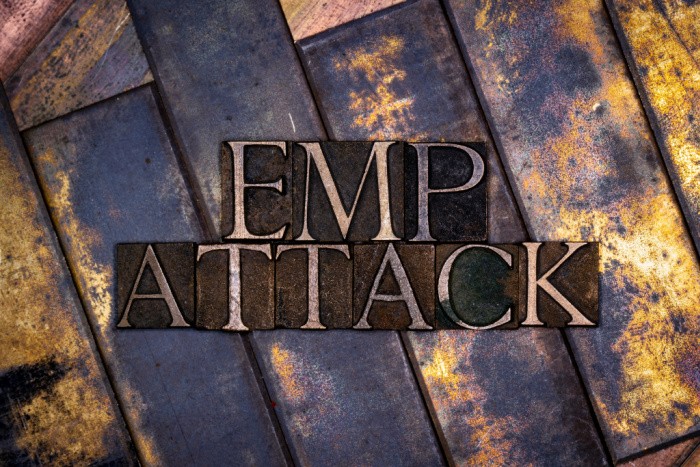
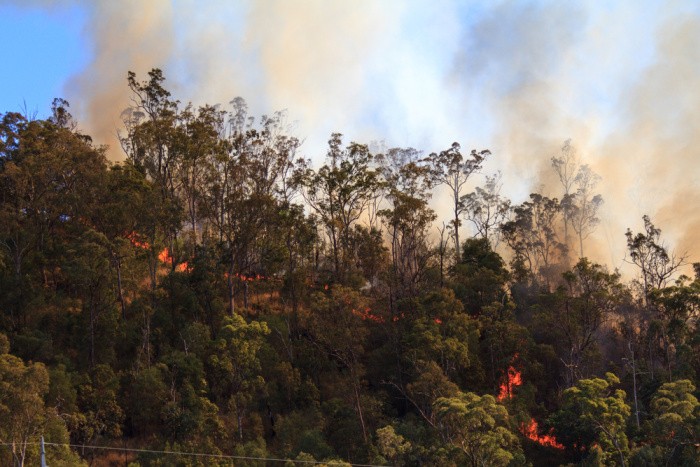
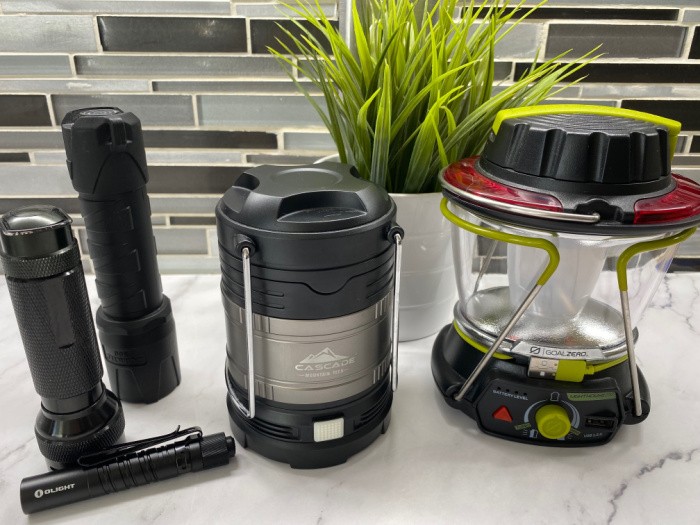
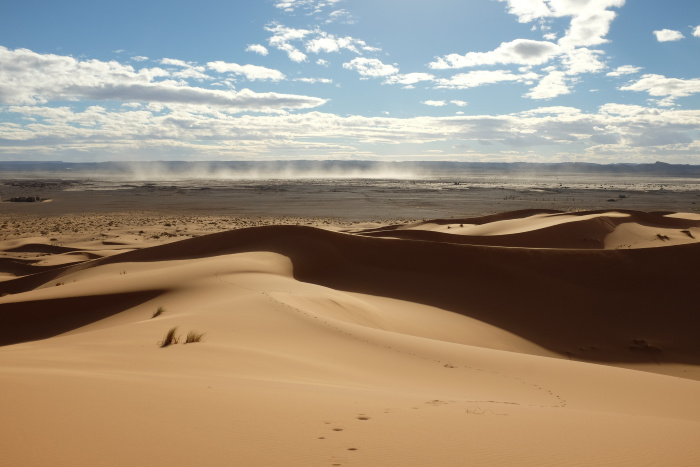















Nice article. Good common-sense checklist. But, regarding Item #22 Candles, a few years back I would have agreed with you: “They may be your only option.” I’ve discovered that’s not really true. Olive oil lamps (lamps that burn vegetable oil) date to biblical times. Easy to make and they work. Here’s a link: https://www.amazon.com/gp/product/B00KB7F9SU/ref=series_rw_dp_sw
Hi Ron, thank you again for the reminder on these olive oil lamps!! Thanks for the link, you are awesome! Linda
Thanks, Linda. You’re pretty awesome yourself. As a side note, I have long believed that knowledge and skills are more valuable than “things” in a survival situation. Knowing how to darn socks, grade coins, change a tire, grow potatoes, and start a fire will leave you in a better position than a pocket full of silver coins. For one thing, you can carry SKILLS across international borders without fear of confiscation. “Do you have anything to declare?” And you answer, “Yes. I know how to sharpen a chainsaw blade, deliver a baby, saddle a horse, and Morse code.” GOOD ANSWER!
Hi Ron, oh my gosh, your comment is the best ever!!!!! I would love to stand in line and be asked that very question!!! Oh the joy that would bring me! I LOVE your comment! Linda
I so much agree on being prepared…my neighbors and I have got together over the past few years and came up with a small middle of the road plan for being prepared…and there is no better feeling than knowing that you are somewhat ready…a couple of things we all have are….Throw Away lighters…Strike anywhere matches…plastic tarps…butane cookers (very inexpensive) extra butane fuel…extra propane with a portable propane stove….we also recently found Happy Yak freeze dried food…sugar and rice..soy sauce…everyone should be looking at items that have no expiration date…White Rice…Salt and Sugar…Dried Beans and Lentils stored in Mylar Bags with Oxygen Absorbers…Beans and Rice are almost a perfect meal…being prepared makes this country stronger and the individual family stronger …good luck out there..
Tom
Hi Tom, I love hearing you have gotten together with neighbors! Having a team of sorts will help all involved. You are so right about the rice and beans, they make a great meal! I need to look at that brand Happy Yak, thanks for telling me about that company. Being prepared does indeed make us all stronger, we all need it! Thank you, Linda
Tom, some of that Happy Yak food looks good, even though it’s a bit pricey per serving. I also like Heater Meals. I completely agree with you on storing dry goods in Mylar bags with O2 absorbers–then putting the bags in buckets. I even do white flour this way and it’s been kept good for at least four years.
Hi Ray, great comment, I love your tips! Linda
Sun tan lotion is one i keep forgetting to pick up. But this list is good, I’ve added a couple things … like duct tape and bug spray. In northern WI ticks are bad 7 months out of the year.
Hi Jerilea, that’s a great reminder about the tick spray!! Thank you, Linda
Watch out for rat poison. A few years ago we had a couple of our kitties die along with their kittens because they had eaten some mice that they found that I had used the poison on. I had missed picking up the rodents and the cats ate them. Lesson learned. Just be careful. I stopped using poisons like that after that.
I have oil lamps and oil for them. I have also made them out of a cold coffee bottle, some metal things I forgot the name of and some strings from a cotton mop. I’ve used all types of oil in them coconut, and olive oil. I also make candles in jars or cans. I got some wooden wicks from Amazon and holders for the can ones. I just used a clean metal veggie can. I will be saving some tuna and canned chicken cans to make shorter ones. I have soy wax and bees wax that I use for candle making. I love making things like that. And soap. And mixes and seasonings.
Hi Deborah, dang I wish we were neighbors! We could make candles and soap together!! And mixes and seasonings!! Linda
Yes Linda! You just need to move on down here to East Texas! LOL I’ve even made my Chai Tea Latte mix. It’s really good. I’ve made taco seasoning and onion soup mix. I love making them and using them. I know what goes into them. And no preservatives. One place I get recipes for these is Budget101.com
Hi Deborah, oh, thank you for this tip! I love it! I will go check out that website! Linda
The mouse and rat poison you used to be able to get has been phased out and a very VERY poor substitute has taken its place. The mouse or rat has to eat a lot of it before it kills it. The old stuff made them thirsty and they took off for water sources to die. Evidently pets had gotten into the old poison and made them sick (or worse). It’s a trade off, I suppose…no one wants pets to be injured. It could be the old fashioned mouse and rat trap might be the best solution until someone builds the better mouse trap.
HI Debbie, that’s interesting, thanks for the update. I use mouse traps and rat traps. It’s awful when these rodents get into my garden!! Darn those critters! Linda
Concerning rat poison- Birds of prey can be killed by eating poisoned rodents, which can get out to be eaten before the poison gets to them. If we are in a SHTF situation, we will want to keep our ecosystem as intact as possible, lest we end up with an even bigger infestation of rodents.
Hi Meleah, great point on the poisoned rodents. I use traps, they love to visit my garden. Thank you! Linda
I know many will react to this by saying “no way! I’d rather have mice”. Years ago when I was single and in college, I worked summers as a naturalist in a state park. I was able to live in a cabin in the park. The last person who lived in the cabin had left groceries in the kitchen cabinets and the cabin had a major mouse infestation. I bought some snap traps and set 8 of them before I went to bed. About 10 minutes later, the traps started going off and I had trapped 8 mice. I reset the traps and went to bed. 10 minutes later and 8 more mice. I knew I needed to get something that was less work and quieter. I talked to the two rangers who worked with the maintance crews and asked them if they found a black rat snake if they could catch it and release it behind my cabin. Around noon, they came back and said they released 2 black rat snakes behind my cabin. I never saw another mouse and never saw the snakes.
The snap traps are best for catching mice without endangering pets or wildlife in the area. A little more work and you do have to touch the critters.
Hi Topaz, I can almost hear the clicking of the mouse traps! Oh my gosh, the groceries in the cabin, oh my gosh! What a mess! The two black rat snakes is the best story ever! Thanks for sharing! Linda
Our NW Florida home was built in the 1920’s of heart pine tongue & groove 2×6 lumber, built off ground on pier & beams. We periodically get rodents. Usually just mice that we catch with the large sticky traps.
This year squirrels ate into the laundry room, at a point where the house roof overlapped the laundry room roof. Drove the squirrels out with lemongrass essential oil. Husband was able to repair the roof damage over several days. But we had a pack of rats get into the laundry room before the repairs were completed. The snap traps worked very well. We finally got the last one by baiting with liverwurst & sunflower seeds.
Hi BDN, oh, those little rodents! You know those critters are such a nuisance, they can get in places we least expect it!! I love hearing about lemongrass essential oil helping. This is so funny, I grew up on liverwurst sandwiches! I haven’t heard that word for years!! Those rodents have good taste, liverwurst, and sunflowers. Thanks for sharing, I love it! Linda
We had squirrels in our attic before we moved here. They chew their way in. And then love to chew on wires. We were lucky we had no house fire. Hubby put mouse poison in the attic and it dehydrated them. He did fix the hole first. We also had a raccoon in the wall between two rooms. It finally got out. It was almost funny. We did have a rat in the house. I was in the bathroom and saw it. I climbed on the vanity and called my husband. He came in and stomped it. That was pretty scary. I’d never seen a rat before. Oh, he fixed the place they were getting in.
You mentioned water I can’t agree more. When we had that cold snap at the end of February and it
froze everything. My water pipes froze for a week. I was able to keep going because of the water I had stored. I sat back one day and looked and I always thought I had alot of water but once you start using it and making sure your animals have water it goes fast. I now know that it may look like alot but really it isn’t. I have to save more. I am glad I had bottled water to drink so I could keep the water I saved for
use in other ways.
Hi June, you are so right, we think we may have a lot of water, but we can always use more! Frozen pipes for a week, yikes!!!Linda
Linda, Emergency Essentials has a sale on your recommended water preserver right now. I just ordered some more in addition to that I ordered through your link. At least it looks like the same one.
There are many portable water filters that are improvements over the LifeStraw. Sawyer and Survivor Filter, both make portable water filters you can attach a bottle to so you don’t have to get down on your belly to use them.
Those stainless steel wash pans look like they make good dog food dishes as well.
I highly recommend Michigan style double bitted axes with hickory handles and grain that parallels the blades. You will need an assortment of files and grinding stones to keep any edged tool honed and useful.
I’ve come to prefer Gorilla Tape to Duct Tape–it’s stronger and stickier.
I’d add Zanfel in case you get into poison ivy, sumac or oak. Also Permethrin spray or creme–kills ticks and mosquitoes and any other bug.
The best bait for rat traps is peanut butter. Works very well and you don’t have to worry about poisoning pets or predators.
Hi Ray, thanks for the new ideas for me. I will order some Sawyer and Survivor Filters! Thank you! Those wash pans are huge! They may take a half bag of dog food! LOL! Thanks for the tip on the axes, Gorilla Tape, Zanfel, and of course the peanut butter, adding all of these to the post. Thanks my friend, Linda
Some of the comments (including one of mine) are older but it’s still great to get the excellent recommendations. I have a couple of things to add that are good. Thrive Life has added freeze dried meals in the last couple months. I have two on order to try before adding some to our camping supplies as well as emergency supplies. I also have one of the Peak 2 (Happy Yak brand) meals on order. After our last camping trip I realized that we need some fast cook meals in the camper for the nights when we’ve played tourist or hiked too much and are too tired to cook. Any one of the freeze dried meals will be great, if we like the taste.
This guy has a ton of good recipes that you can dehydrate and make yourself. To “cook” his meals, he puts the dry ingredients in a Thermos food jar and adds hot water and then hikes with it in a side pocket of his backpack and it’s hot and ready for lunch or dinner. He has some books that will walk you through making a lot of single serving meals in a hurry. He also posts a lot of different and interesting recipes on his website. I’m sure if you put these in mylar bags they will easily last for 5 to 7 years. https://www.backpackingchef.com/backpacking-recipes.html
My youngest daughter is a geology major and as such does a lot of camping field studies. After a friend of mine died from heat stroke, I always worry about my kids not getting enough water. When I remind them, they just roll their eyes and say “yes, Mom.” When she went to Yellowstone for 10 days last summer, I bought these water filter straws. https://amzn.to/3G2n3Ww She was all excited about it and tried it out and was happy with it. I put the others in the cars.
My cousin has an injured leg and she cannot get into her shower at home. She has found these https://www.amazon.com/McKesson-Disposable-Washcloths-Incontinence-Alcohol-Free/dp/B00QS6XFZC/ref=sr_1_1_sspa?crid=26LFM742CA63M&keywords=disposable+wipes+or+washcloths+for+adults&qid=1668030844&s=hpc&sprefix=disposable+wipes+for+adults%2Chpc%2C126&sr=1-1-spons&psc=1 and says that they are great to stay clean. I ordered some to use to clean up between showers, especially in the summer, and they work great. I have a case in my emergency supplies and hope to add another case soon. I plan of taking some camping with us next summer.
I’ve been pricing Water Bricks for a while and right now the best price I have found is at Sam’s Club online. They have a 4 pack with spigot for just under $75 and a 10 pack with spigot for $173. Not sure if you have to be a member to order from the website. https://www.samsclub.com/s/water%20bricks
I bought this keychain screwdriver set to go in my husband’s stocking (shh) and every time I think about it, I remember Linda’s “survival necklace” and thought this would go wonderfully on that. https://amzn.to/3DUZ1Kt
I also ordered these for our truck (which pulls the camper) and thought they would be great for not only emergency supplies but also for travel supplies. We can put in the filtered water bottles, the filter straws, sunscreen, bug spray, bottles of water, the flimsy emergency blankets, the cheap emergency rain ponchos, flashlights, the solar phone charger, compass, maps, etc. This would still give us space for our National Parks passport book, snacks, all the travel pamphlets hubby picks up and all the other items we end up having taking up space in the front seat. https://amzn.to/3TpYm9s
Hi Topaz, great tips, thank you for sharing!! Linda
When it comes to knives, you really must have more than one. You need a pocket knife, if not a few. These are for cutting rope, opening boxes and packages, etc. And you should own what is called a belt knife…. just a fixed blade up to 4 inches. These often work better than pocket knives.
Then you should have a larger knife (Like a Ka-Bar) or a short machete or something like a Kukri or the Kershaw Camp 10 or one of those Ontario knives that some argue as to whether they are big knives or machetes. These are for heavier jobs like to make an emergency exit from a house, to cut wood, maybe butcher large animals, etc. Some people prefer an axe, hatchet or tomahawk.
And of course you need some kitchen knives. Now some people, like to use a Mora like the Companion and the Heavy Duty Companion which come in carbon steel and stainless. They’re not cheap fillet or paring knives, but they are inexpensive. People use them for camping and survival and they’re quite durable and long lasting. They feature a flat or Scandi grind. That means you lay them flat on a stone, lift till it is on the edge (sharpened area) and stroke away. Easiest type of grind to sharpen. But you might prefer your regular knives and probably do better with them, at least at home or in an RV or a camp.
When it comes to sharpeners I’d suggest diamond stones or sandpaper.
You can cut the paper to any length or width and then glue or tape it to a painter’s stir stick and create a file or glue it to a piece of glass (Removable adhesive – Re-use glass forever) or flat length of wood and create a sharpening stone. You won’t need oil or water although with wet/dry sandpaper that is an option.
You can make a pocket sized “stone” if you want to. You should have a variety of grits, but for undamaged knives needing to be sharpened up you’ll mostly use the higher grits (400…. 2000) and then strop the blade on a piece of old leather or canvas or cardboard coated with polishing compound.
I’m trying not get into a long explanation here, but the sandpaper method is the easiest and if the blade is not flat but convex, you can lay the sandpaper on a thin sheet of foam and it will provide a slight give to maintain the blade’s shape. You can use a sanding pad or block. In any case, you replace the paper when it wears out, it’s cheap and easy to store or pack.
Hi Frank, I LOVE LOVE LOVE your comment! I have really good kitchen knives and this is so good for me to learn. Thank you! I love learning about new items, thank you!! Linda